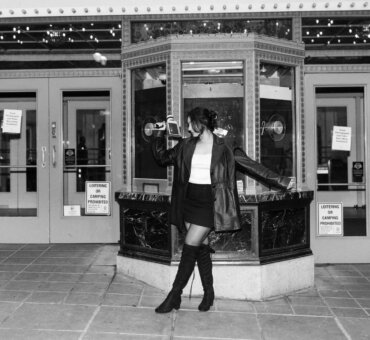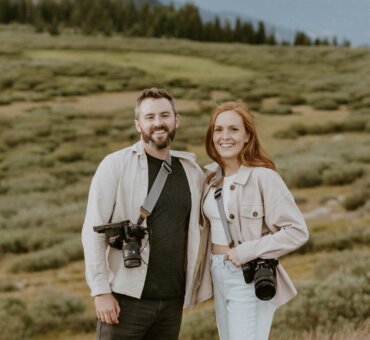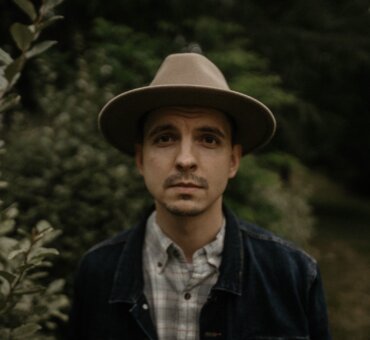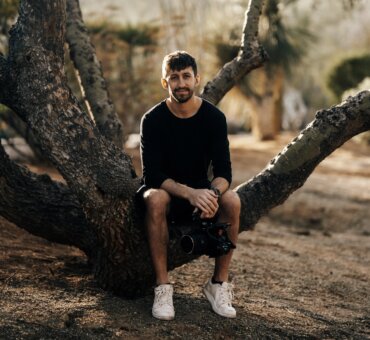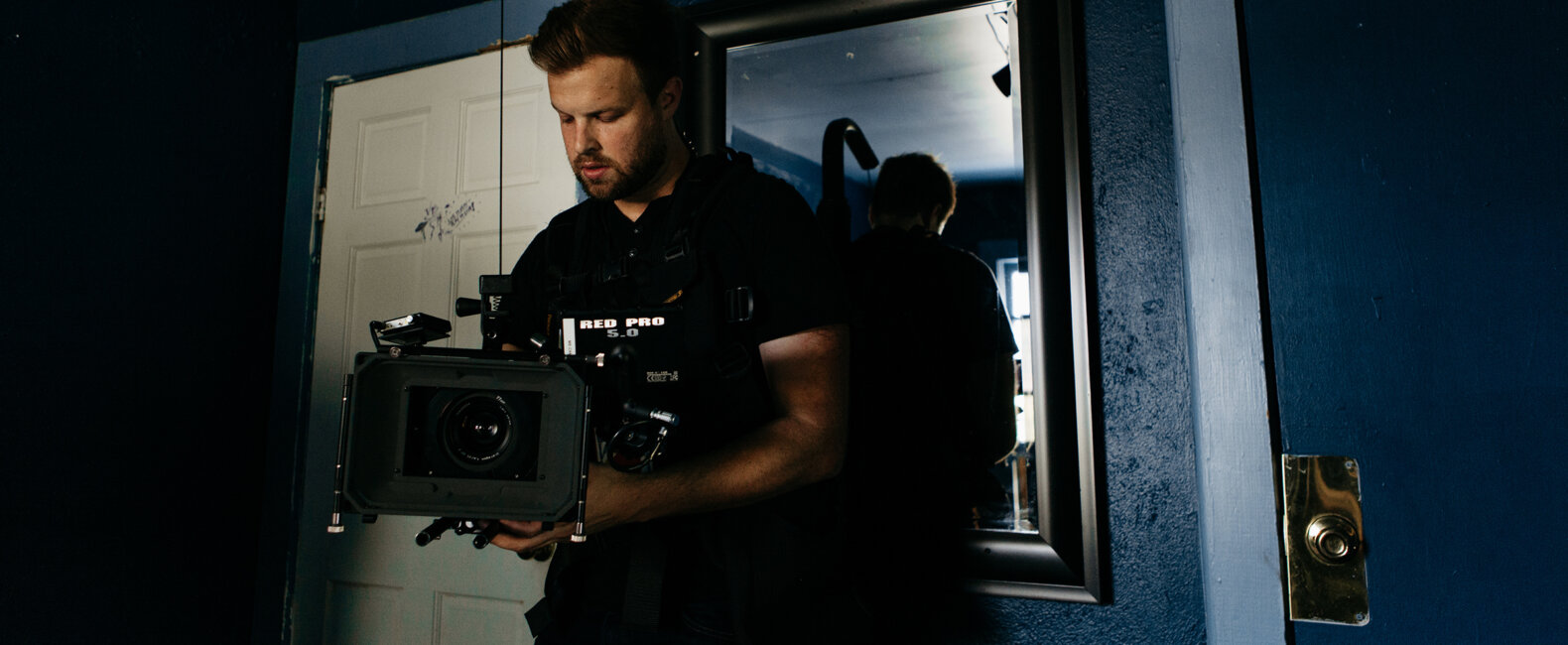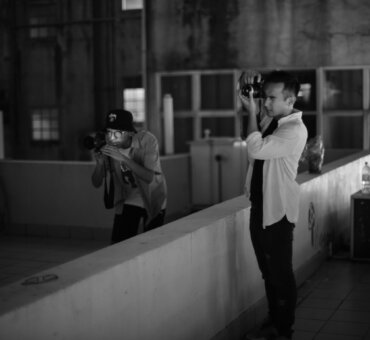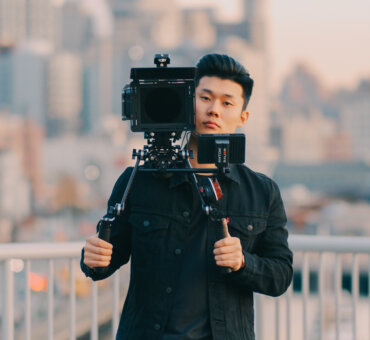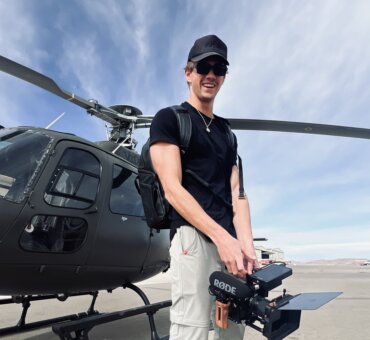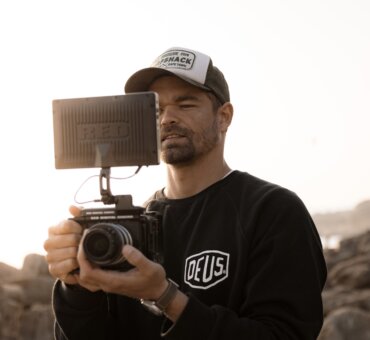I recently heard one of my favorite directors, Alejandro González Iñárritu (Birdman, The Revenant), say that his biggest concern for young filmmakers coming up behind him is our outsized focus on results, our obsession with recognition, and our overwhelming need to be seen as a big deal. Basically, he’s worried about our egos getting in the way of making substantive work. For him, empathy is the central focus as he engages the process of making a film.
The more I thought about it, the more this idea really hit home. Empathy stands in direct opposition to ego. Empathy is a focus on the present moment. Empathy allows us to be available, responsive, and open to the process, rather than obsessing over the product. If empathy asks the question, then I imagine the ego screams for answers. The ego is all about the future hypotheticals: Are people going to like this? What will it mean for my career? Am I messing this up? Why don’t people realize how amazing I am? The anxiety of the ego pulls us out of the moment, turning our attention from the process to the final product, which often makes us dogmatic and dictatorial.
Now, I know empathy may seem like an off-topic discussion when talking about how to become better filmmakers. But I’m completely convinced that more than any other thing, a commitment to empathy is a critical component to creating meaningful, substantial films. I believe it’s worth taking a moment to consider what empathy really means — for ourselves, for the people we work with, and for the people we work for.
EMPATHY FOR OURSELVES
If we’re going to work from a place of empathy, we need to start with ourselves. We need to have compassion for where we are and, more importantly, for where we’ve been. It’s incredibly easy for me to watch my reel from a year ago from a place of ego. I see all the mistakes, all the things I’d do differently, all the ways I think I fell short. And then the questions begin to form: Why did I light so haphazardly? Why did I direct that actor to do that? Why did I move the camera so sloppily? What was I thinking? I find myself beginning to think that my old work is terrible, that I’m terrible, and that surely I’ll never work again.
But this is just my ego getting the best of me. We need to understand our old work as a part of our journey. Sure, maybe we wouldn’t make those same camera moves, or cut that one sequence like that again. But you know what? That’s just part of the process. That’s how we grow. And if I can’t make space to have empathy for myself and the work I’ve already done, then it will be infinitely harder to have empathy for the work I’m making right now.
Don’t feed your ego by despising your past work. Cut yourself a break. Practice empathy. Filmmakers: be kind to yourselves.

EMPATHY FOR OUR COLLABORATORS
They say filmmaking is the ultimate team sport, and I absolutely agree. I can’t do anything without 5, 10, sometimes 100 other people all bringing their own experiences, talent, and expertise to the project. Good filmmaking requires intense collaboration, but it also requires strong direction to ensure that all of these collaborators are in unison, lockstep, and headed toward the same goal: a meaningful film.
So how do we pull this off? Well, I know the image of a dictatorial tyrant is an outdated way of thinking. Your crew and collaborators are (hopefully) not there to serve your every whim. They are talented and capable people who are committed to the larger idea of the project. As the director it’s your job to understand what each collaborator brings to the table. What they’re capable of, what they’re nervous about, what they need in order to be present during the entire filmmaking process. This awareness and presence on your part will help ensure that the focus of the entire crew is on the process, rather than the final product. In this way, each light, each scene, each camera move, every performance, every cable run can become in service to the present moment.
The process is where the real beauty happens. The final film, in reality, is just the byproduct of hundreds of people’s best efforts, day in and day out. As a director, it’s your job to help keep the focus on those little decisions and to make that process as collaborative as possible. This happens when you approach your collaborators with empathy.
When a director’s ego flares up on set, it’s often due to insecurity. You’ve got 50 people staring at you, wondering what’s next. Maybe you’re not sure and you suddenly start to feel like a fraud. So you start ordering people around, getting upset about things. It might feel like taking control, but it’s actually a form of losing control to your ego. As a filmmaker, you cannot let fear dictate the way you work. In those moments you can choose empathy. You can ask the questions. And when you do, you’ll find that you and your team are free to be present and put something on film that is real and honest and worthwhile.
At the end of the day, that’s what filmmaking is all about. Not the awards, not the number of views. It’s about being present, it’s about creating real moments, and it’s about doing it together.
Recently, I had the opportunity to direct an Academy Award–winning actress. It was terrifying. We were in a tiny town in Georgia, and she was staying in a hole-in-the-wall motel. She’d just come off the set of a massive film with a bunch of other gold statue winners. And immediately after shooting my project, she was heading to another one. No pressure.
I remember speaking to her on the phone prior to the first day of production. She stopped me mid-conversation, saying, “Ryan, I don’t want you to be intimidated by the other projects I’ve been a part of. I don’t want you to be worried about projects I’m headed to next. I don’t want you to be worried about your past or your future work. We’re in this together. For the next few days, this is what we’re doing. I commit to being present if you’ll do the same.”
It was an amazing conversation and a real gift that she gave me. She wasn’t concerned about her ego at all. She didn’t care that she was on my rinky-dink music video set instead of some massive set. She reminded me that it was all about being present and creating a moment together. At the end of the day, that’s what filmmaking is all about. Not the awards, not the number of views. It’s about being present, it’s about creating real moments, and it’s about doing it together.
EMPATHY FOR CLIENTS
This can feel like a tough one. It’s very easy to see our clients as the barriers to our making great work. They can make us feel like we aren’t in control of the final product. We can start to think that if they’d just get out of the way, we’d be able to make something amazing. I hate to say it, but that’s your ego talking, my friend. Our clients are not hurdles to jump or barriers to good work. They, too, are collaborators in this process, with their own hopes and dreams for the project.
I believe this perceived divide between filmmakers and clients can be bridged with empathy. You might not be in control of the product, but you’re still in control of the process. And it’s your job to find a way to see the project from your client’s perspective. What are they after? What are they insecure about? Have they been burned in the past? Empathy allows you to ask questions that tell your client, “I hear you. Let’s figure this out together.”
It’s your job to find a way to see the project from your client’s perspective. What are they after? What are they insecure about? Have they been burned in the past?
I was recently working on the second unit of a big commercial job, and the day started getting away from everyone. It happens. It wasn’t anyone’s fault; it was just the pressure of a high-profile piece, lots of moving pieces, and a clock that wouldn’t stop running. Suddenly, the client started demanding shots that weren’t a part of the plan and that I didn’t agree with, even shots that were in direct conflict with what the main unit director wanted me to accomplish. It would have been easy for egos on both sides to run wild. It would have been easy to dig in and become confrontational. Us against them. But when I took a step back from the situation, I realized the client had people breathing down his neck too. He was under a lot of pressure and he needed to deliver for his bosses. Maybe these arbitrary decisions were his way of asking, “Is this any good?” Taking a standpoint of empathy, I said, “Hey, man, I understand you need to deliver something awesome. I have a different idea for how to get there, but I hear you.” The temperature in the room changed. The client now felt like his ideas were being heard, and everyone was reminded that we’re all in this together, just trying to make something amazing. In that moment, we were no longer the barriers to each other’s goals; we were there to help accomplish them together.
Filmmaking is not cool. I know it seems cool to people who’ve only seen the final product. But filmmaking is hard-ass work, and it often requires us to be vulnerable in ways that are quite uncomfortable. We ask ourselves big questions: Am I good enough? Am I doing the right thing? How can I be better? This anxiety often comes with the territory. It comes from the desire to make something beautiful and meaningful and substantial. But it’s up to us whether or not our anxiety drives us to empathy or to our ego. It’s up to us to stop panicking about the future and choose to be present in every moment on set; to find a little grace for ourselves, our crew, and our clients. It’s up to us to bring empathy to every step of the process. In the end, the product will take care of itself.




































































